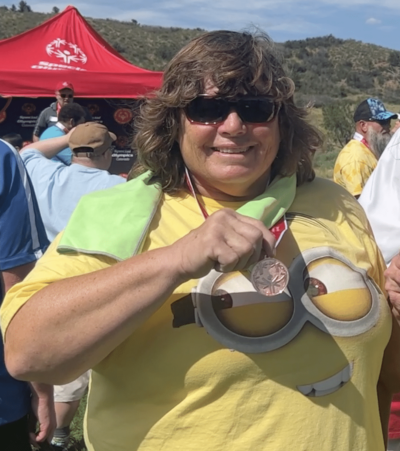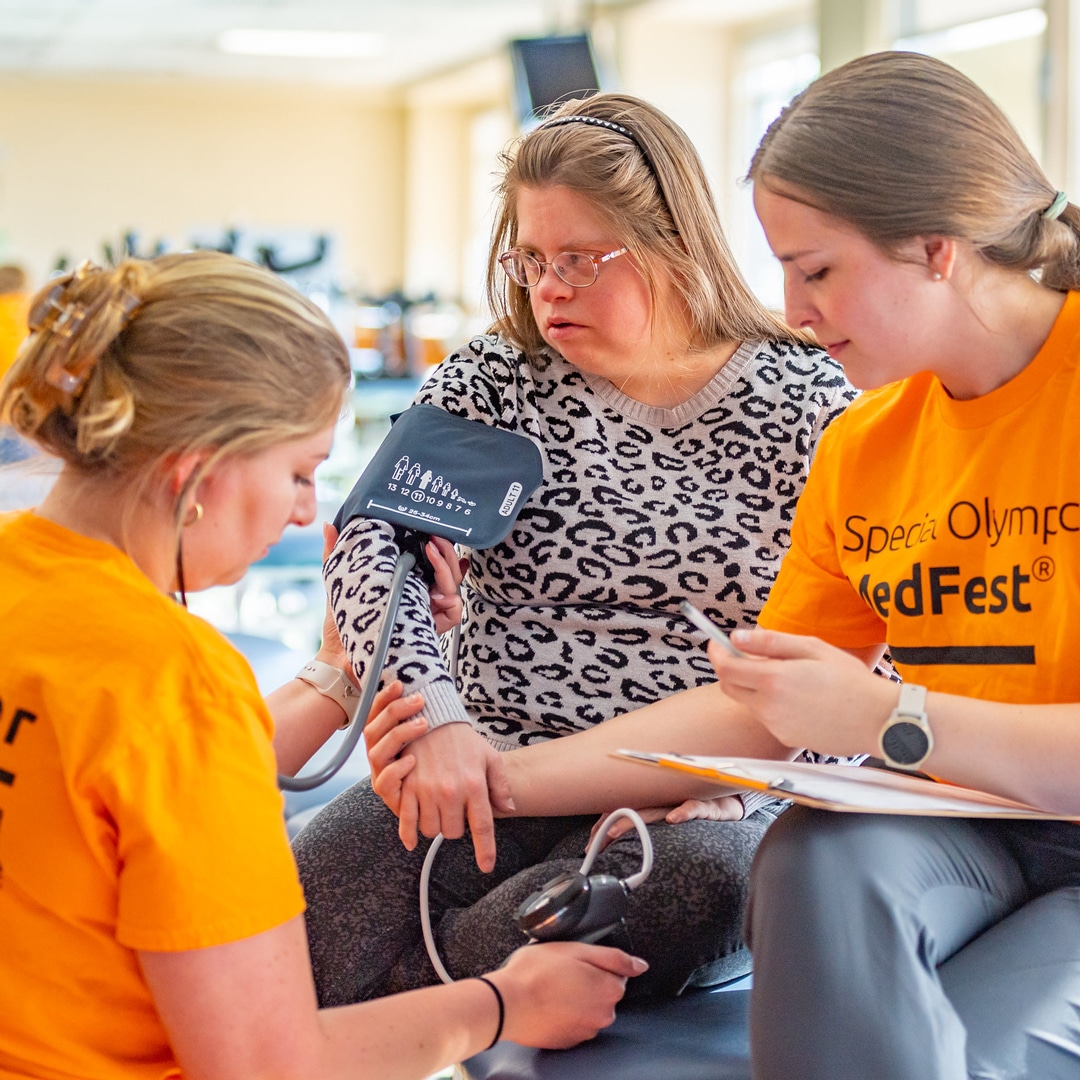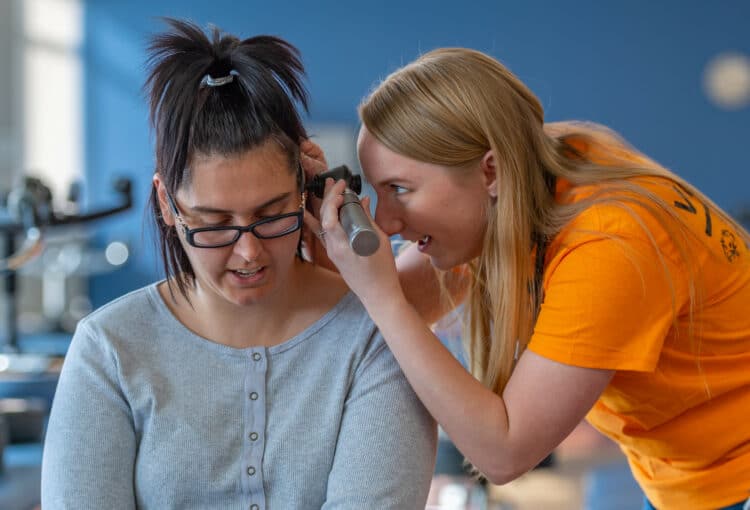Special Olympics Colorado is Championing Inclusive Health
By Erin Holloway, Special Olympics Colorado Athlete
On a cold and windy January day, I was starting to feel a scratchiness in my throat and something building in my chest. It’s a feeling I have felt many times in the past, and a feeling I know well. I tried taking some cold medicine and getting some rest to see if it would help, but after a few days I knew I needed to see a doctor. I called and made an appointment to see the doctor and when I was at my appointment, I tried to explain that I had a history of having bronchitis and pneumonia. I also tried explaining that I was having trouble breathing and my coughing was uncontrollable. My doctor told me everything sounded fine, and I should continue taking the cold medicine to help me feel relief. After a week without improving, I returned to the doctor and was told the same thing, everything sounded ok. I wasn’t ok and I knew it, but the doctor wouldn’t believe me. I was tired and it was hard for me to breathe. I went home discouraged and a few days later, I went to Urgent Care. They listened to me and took x-rays of my lungs, but told me everything seemed ok, so I went home still feeling sick. A few days later in the middle of the night I woke my roommate and told her I couldn’t breathe; she took me to the emergency room at the hospital and they treated me for pneumonia.
This is just one of my many experiences going to the doctor; the dread of not being understood and sometimes making multiple visits to the doctor just to be understood and for someone to acknowledge that something is wrong. I know I’m not alone, there are many athletes in the world who experience these same difficulties, or even worse, don’t have access to proper healthcare.
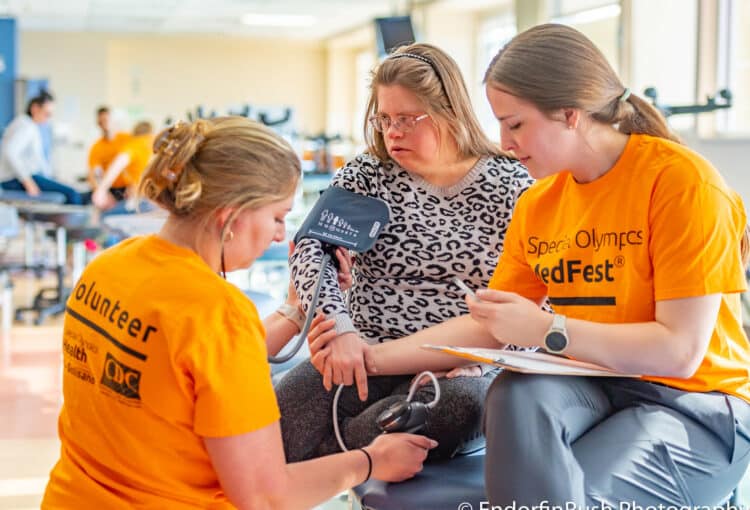
Volunteers check the blood pressure of an Athlete at MedFest.
A survey that was conducted by Special Olympics found that 68 percent of people felt that people with intellectual disabilities get the same or better care from healthcare providers. But that’s simply not true.
According to Special Olympics Health Research, Special Olympics has found the following to be true among Special Olympics athletes:
- 36 percent have obvious, untreated tooth decay
- 16 percent have an eye disease
- 24 percent have low bone density
- 24 percent have failed hearing tests
- 49 percent have at least one kind of skin or nail condition.
Everyone deserves to have access to quality healthcare. This is why inclusive health is so important.
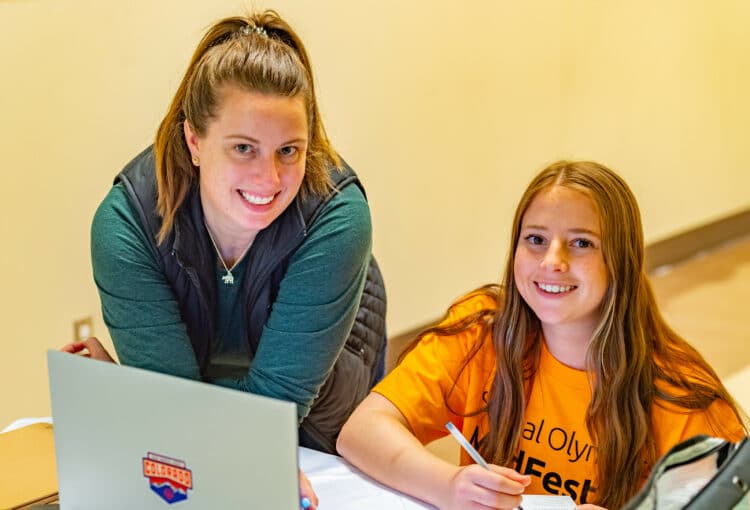
Jena Twete Director of Inclusive Health at Special Olympics Colorado with a Special Olympics Colorado Volunteer
Jena Twete, with support from our Community Health Partner, Kaiser Permanente, is working on creating these opportunities for individuals with intellectual and developmental disabilities (IDD) to have access to the inclusive healthcare they deserve. Jena is the Director of Inclusive Health at Special Olympics Colorado and oversees all the health and wellness programing, which includes the Healthy Athletes program (health screenings for athletes at competitions), the Fitness Captain program, performance stations, and virtual wellness challenges.
Specifically at SOCO, Jena has seen a boost in the attendance at Healthy Athletes screenings. In the past year, there have been more than 1,500 athletes to go through the screenings. Jena feels that this is amazing to have that many athletes come through and for healthcare providers to offer follow up care to those who need it.
But not just any care. Jena says they are working on referring athletes to locations that have experience with IDD populations so that those who need referrals know that they are walking into a facility that has the experience working with a diverse population, “and not going to treat them like any old person right? So, we are making improvements there, it’s very exciting,” said Jena.
For Jena, it is personal why inclusive healthcare is so important. She has a young daughter who is missing a small piece of one of her chromosomes and has been diagnosed with developmental delays. Jena is passionate about this work because this is going to affect her daughter someday when she becomes an adult. “I’m not going to live forever,” said Jena. “So I want to know that when she is older and I’m no longer here to protect her and get her the care she needs and advocate for her, she’ll have that ability. Hopefully the work that I do can help push things in that direction.”
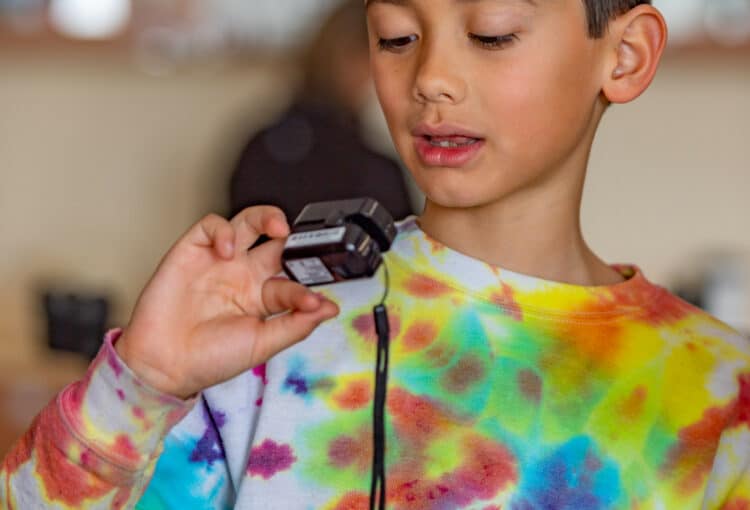
Special Olympics Colorado offers athletes many opportunities throughout the year to receive access to the healthcare they deserve. While great strides have been made in inclusive health, there is still more that can be done. Jena stated that Colorado has great pediatric care for children with IDD, but as athletes reach adulthood, they usually don’t receive the care they need. “We can do better as people get to adulthood in still providing great inclusive healthcare,” Jena explained.
Jena’s goal is getting into as many healthcare professionals to participate in the Inclusive Health Training. This training teaches people about what Special Olympics Colorado does as an organization, talks about health disparities that exist for the IDD community, and what healthcare professionals can do to treat people with IDD better.
Jena feels that the best way to make a change is to start with the future generation of healthcare providers. By getting students who are going to school to become doctors, dentists and other healthcare professionals involved in Special Olympics gives them the knowledge they need to work with the IDD population and gives them hands-on experience. Then, they can bring take what they learned into their profession and challenge others to work with more diverse populations and receive more training and education. This way, they can deliver better services to underserved populations to give them the medical attention they deserve.
Jena says, “the same quality care that others receive, we need the care to be equal [for people with IDD], and hopefully these future generations will be able to help with that.”
We all want change to happen now, but it takes time and lots of hard work and effort by many, including ourselves. We as athletes can help. If you are going to a doctor’s office or other health providers and you think they can really benefit from Inclusive Health Training, share that information with Special Olympics Colorado. Then, they can reach out to that healthcare professional and encourage them to take the Inclusive Health Training.
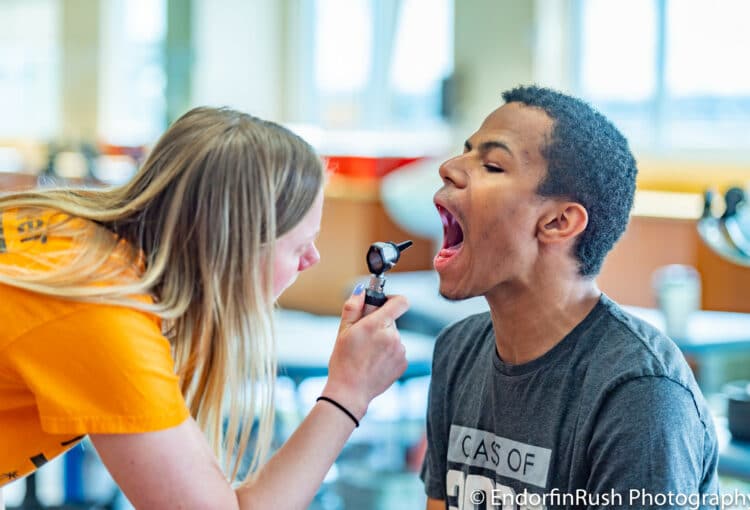
Most importantly we can’t give up. If we feel like there is something wrong with our health and our healthcare provider does not understand us or is telling us we are ok when we feel something is wrong, don’t give up and keep advocating for yourself. You can ask for help from a family member, close friends, or maybe seeking another healthcare provider that might understand you better.
Health is important for all of us, and we all deserve access to quality healthcare. No one should be afraid to go the doctor and not receive proper care. Inclusive Health should be a priority for all.
